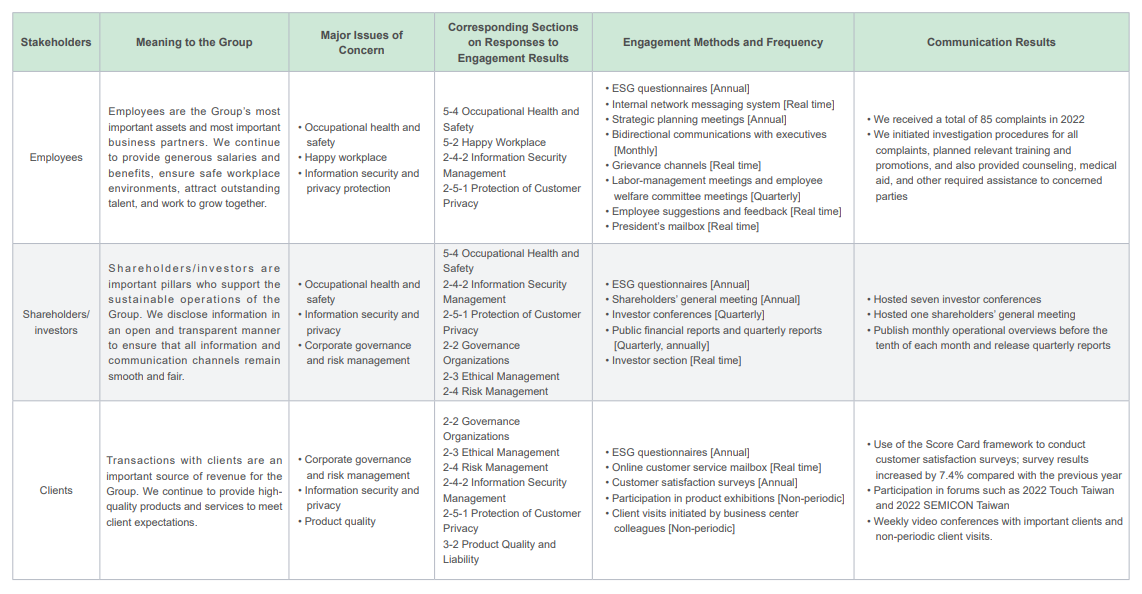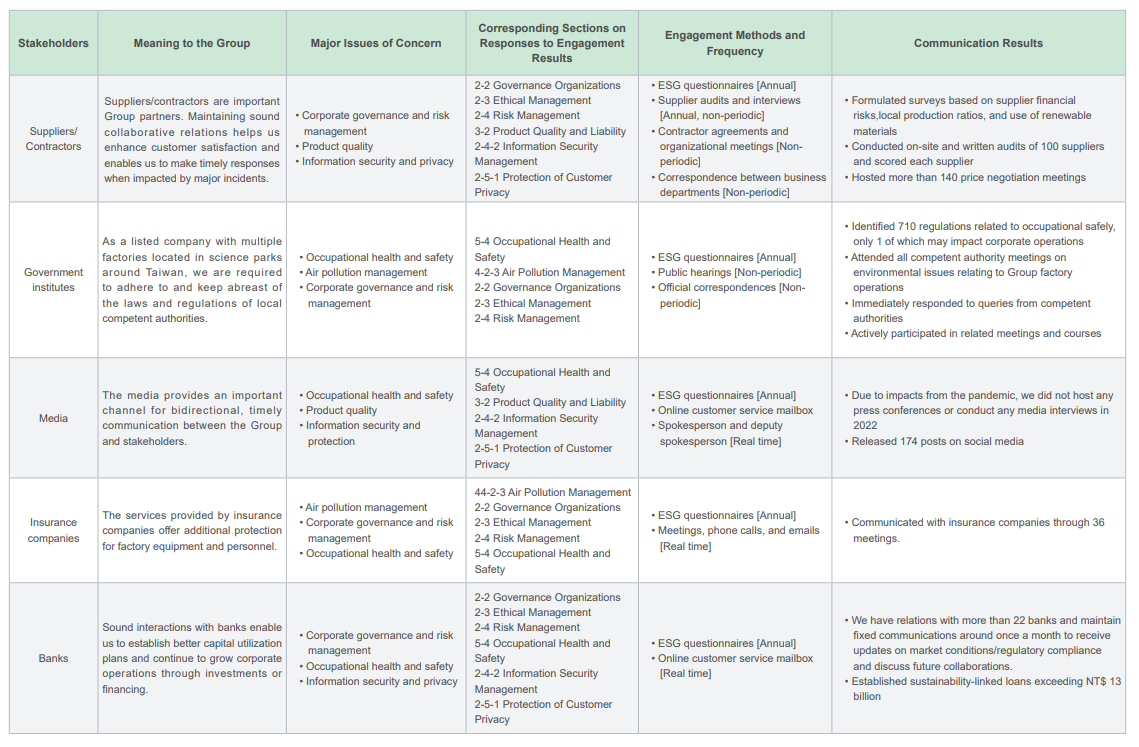We allow all citizens of the earth
to participate in building an ideal future
Identification of Material Topics
- Process for Assessing Material Topics
A sustainability editorial team composed of representatives from all functional units, including our corporate promotion office and human resources, auditing, R&D, manufacturing, shareholder affairs, environmental health and safety, quality assurance, factory affairs, and materials departments helped to compile this Report. Each unit identified stakeholders based on unit characteristics, relevant industrial practices and principles, and AA1000 stakeholder engagement standards related to Dependency, Responsibility, Influence, Diverse Perspectives, and Tension. We collected information on industry-related issues and communicated with internal and external stakeholders. Following review by external experts and internal impact analyses, these issues were submitted to and confirmed by the ESG Committee before publication.
- Continue to identify and assess impacts

- Determine material topics to report

Impact Assessments of Material Topics
The sustainability editorial team assessed economic, environmental, and human rights (people) impacts from the 9 material topics, and conducted comprehensive assessments based on positive/negative and actual/potential impacts as well as possibilities of occurrence.
- Process for Assessing Impacts
1. Quantified impacts and possibilities of occurrence through questionnaires
We graded the economic, environmental, and human rights (people) impacts as well as possibilities of occurrence using scores from 1 to 5 (with 1-4 representing increasing probabilities of occurrence and 5 denoting impacts that had already happened); score results were submitted to related units or senior managers of important subsidiaries for further assessment.
2. Impact ranking
After analyzing the impacts of the 9 material topics and comprehensive consideration of suggestions from the management team and external experts, our assessment results are summarized as follows: • Impact assessment results showed that each issue had the highest probability and most significant impacts on corresponding aspects. Additionally, “information security and privacy protection” and “corporate governance and risk management” involved confidential customer information, personal privacy, internal management structures, and corporate culture, so these topics also had significant impacts on the human rights (people) aspect. Therefore, these two topics were our top two material topics for the year. • Additionally, even though environmental topics such as “waste management and circular economy,” “water resource management,” and “air pollution management” have both economic and environmental impacts, the Group handles all environmental management topics with caution and has established comprehensive management mechanisms to prevent waste leakages, pollution of surrounding rivers from discharged wastewater, and air pollution, and therefore human rights (people) impacts are less likely to occur.
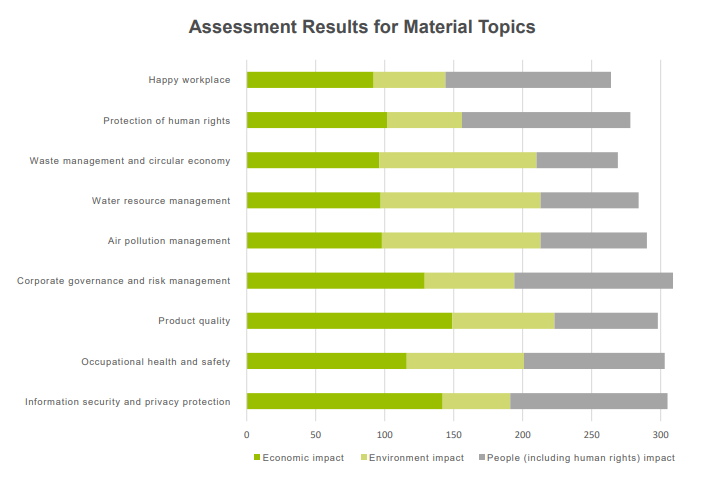
- List of Material Topics and Corresponding GRIs
The sustainability editorial team referenced suggestions from all stakeholders and external experts, as well as comprehensive considerations, to identify the material topics for the year with the top three economic, environmental, and social impacts. The following rankings are based on the results of “ESG impact assessment surveys” filled out by senior executives from related units and the positive and negative impacts of each topic.
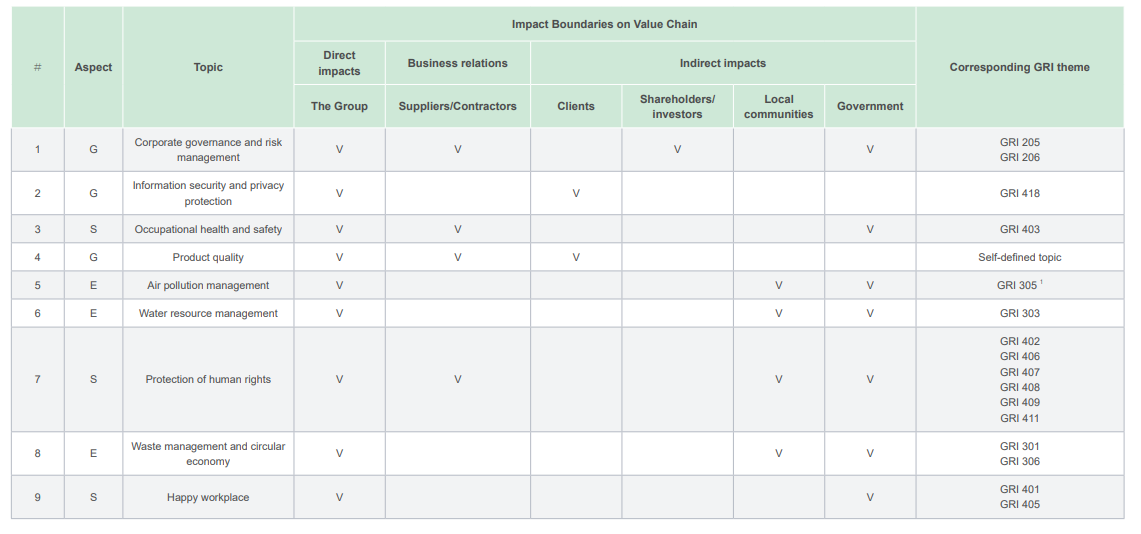
1 This material topic only contains information related to GRI 305-7 Nitrogen oxides (NOx), sulfur oxides (SOx), and other significant air emissions, and therefore we have made no other disclosures related to other GRI 305-6 indicators
Management Policies and Impact Descriptions of Material Topics
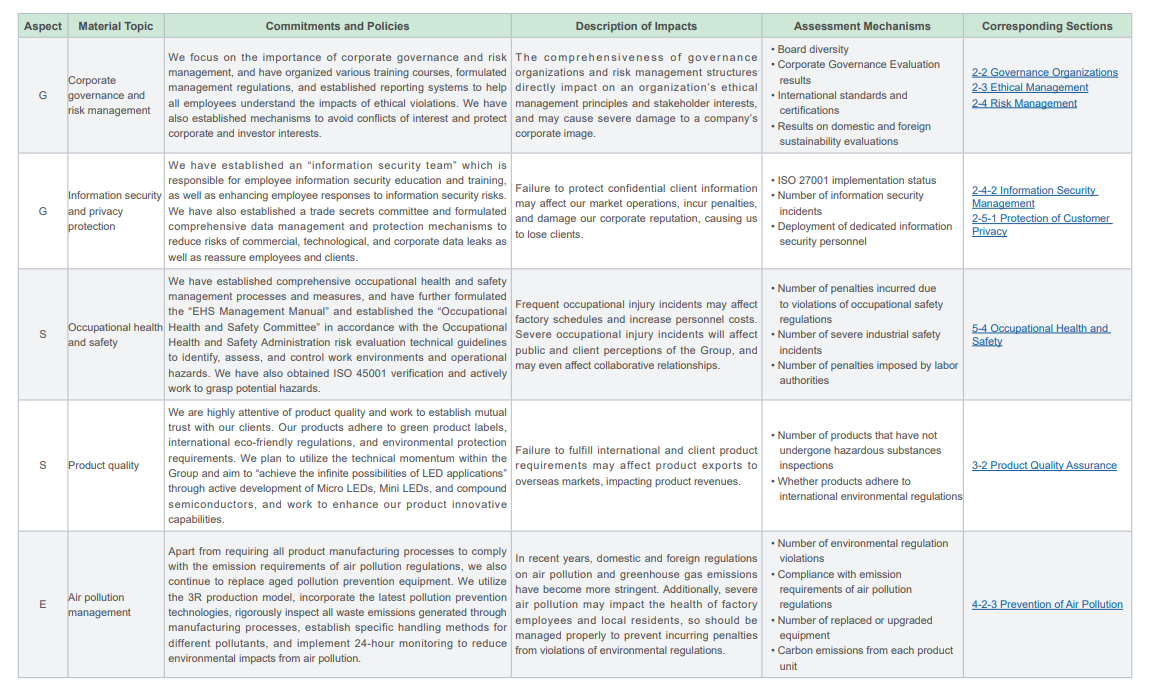
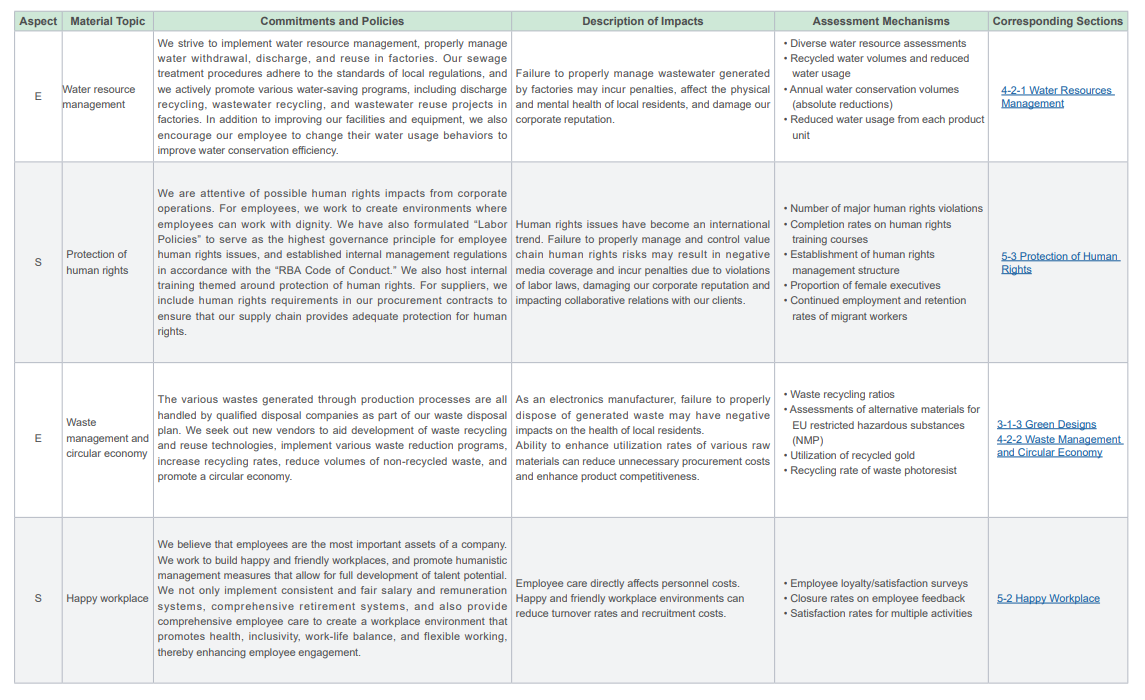
Stakeholder Identification and Engagement
We attach great importance to stakeholder interests and strives to establish two-way communication channels through a variety of communication methods to ensure that we can obtain an accurate understanding on issues of stakeholder concern; we review these issues in a timely manner and prioritize responses. As part of our response to important ESG issues and related tasks, we established eight ESG task groups in 2022 to coordinate related matters in hopes of gaining a comprehensive perspective of the whole Group, utilize the advantages of our three main subsidiaries, and achieve synergies.
